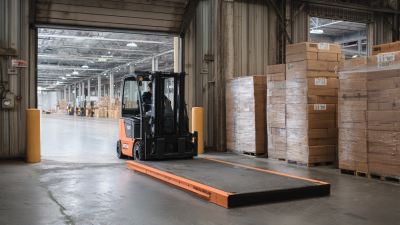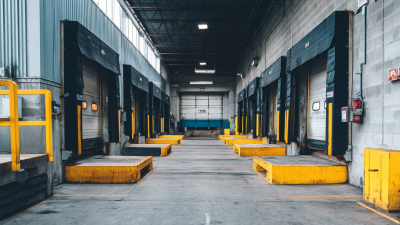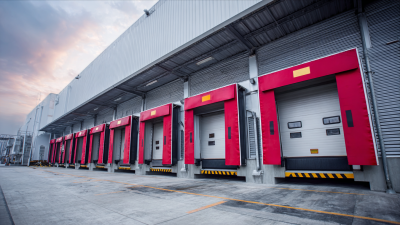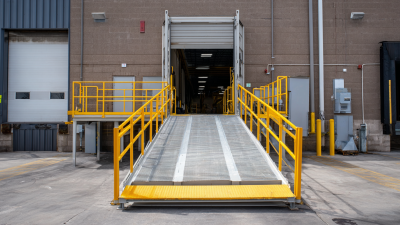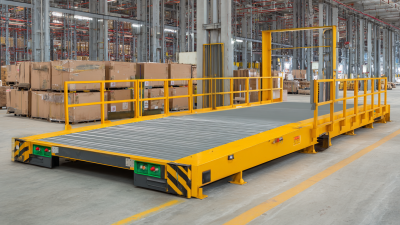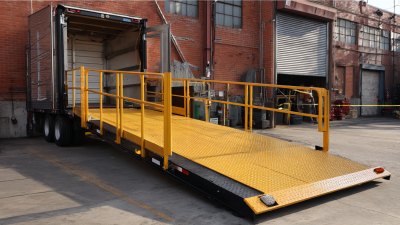Selecting the right loading dock leveler is a crucial decision for any business that relies on efficient logistics and inventory management. With a multitude of options available on the market, understanding the specific requirements of your facility is paramount to optimizing your loading and unloading processes. A loading dock leveler serves as the bridge between your loading dock and the delivery vehicle, ensuring seamless transitions and minimizing the risk of accidents or cargo damage.
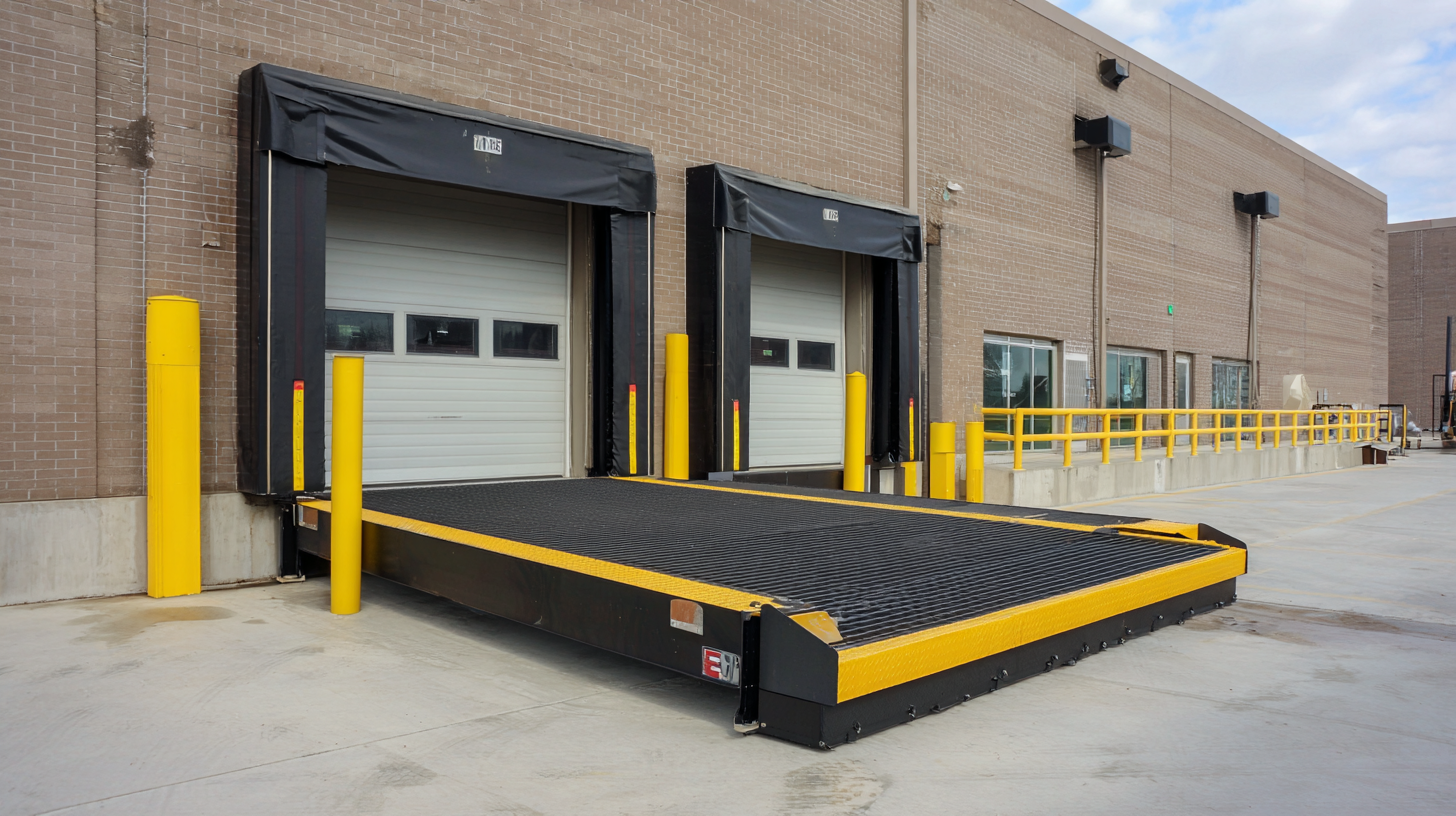
In this guide, we present the top 10 tips to help you navigate the complexities of choosing the best loading dock leveler that aligns with your operational needs. From assessing weight capacities and types of levelers to understanding the importance of maintenance and durability, these insights will empower you to make an informed decision. Whether you are upgrading existing equipment or implementing new solutions in your logistics chain, our comprehensive overview will illustrate how the right loading dock leveler can enhance productivity, safety, and overall efficiency in your business operations.
When selecting a loading dock leveler, it is crucial to understand the various types available to meet the specific needs of your business. The most common types include hydraulic, mechanical, and pneumatic levelers.
Hydraulic levelers are known for their ease of use and reliability, using hydraulic power to elevate and lower the platform. They are particularly beneficial in high-volume operations where speed and efficiency are paramount.
Mechanical levelers, on the other hand, require manual operation but can be a cost-effective choice for businesses with lighter loads or lower frequency of use. These levelers often have a durable construction and can withstand heavy wear.
Lastly, pneumatic levelers utilize air pressure to raise and lower the platform, offering a smooth transition between the dock and vehicle. This type is ideal for businesses dealing with varied load sizes and those that prioritize operator safety and comfort during loading procedures.
Each type presents its unique benefits and challenges, making it essential to assess your business's specific requirements before making a decision.
When evaluating loading dock leveler specifications, it’s essential to consider several key factors that can impact efficiency and safety in your operations. One important aspect is the weight capacity of the leveler. According to the Material Handling Industry (MHI), choosing a leveler that can support the maximum weight of your loads, which typically ranges from 30,000 to 80,000 pounds, is crucial for preventing accidents and maintaining operational efficiency. It’s advisable to consult with manufacturers to ensure the right leveler is selected based on your specific needs.
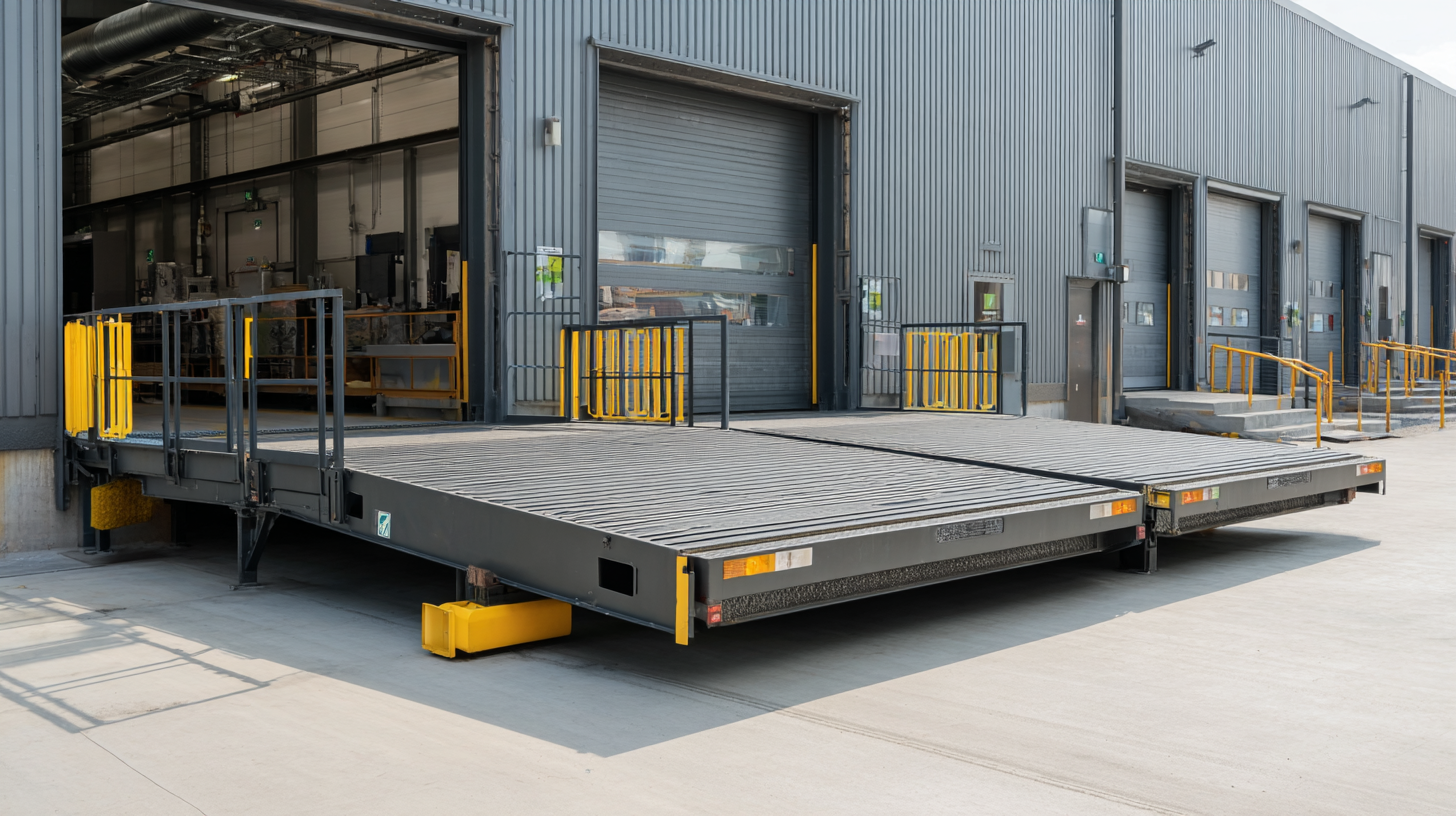
Another factor to consider is the platform size and its compatibility with your trailers. A larger platform can accommodate various trailer heights, reducing the need for multiple levelers and simplifying logistics. Additionally, many businesses find that investing in hydraulic levelers, which are noted for their ease of use and reliability, enhances safety and efficiency. A recent report by the Industrial Truck Association (ITA) indicated that companies using hydraulic levelers experienced a 30% decrease in loading and unloading times compared to mechanical alternatives.
Furthermore, examining the durability and maintenance requirements of different levelers is vital for long-term cost efficiency. Opting for a high-quality, heavy-duty construction minimizes wear and tear, ultimately reducing maintenance costs. Implementing regular inspections as recommended by the Occupational Safety and Health Administration (OSHA) can further extend the life of your dock equipment and ensure compliance with safety standards, making it a key tip in your selection process.
When selecting the best loading dock leveler for your business, it's crucial to assess your specific operational needs. Start by evaluating the types of goods you handle and the frequency of loading and unloading operations. For instance, if your business involves heavy machinery or large pallets, you'll require a robust leveler that can withstand the associated weight and impact. Conversely, if your operation frequently deals with lighter packages, a standard leveler may suffice. Additionally, consider the seasonal fluctuations in your business to ensure the solution you choose can accommodate peak periods without sacrificing efficiency.
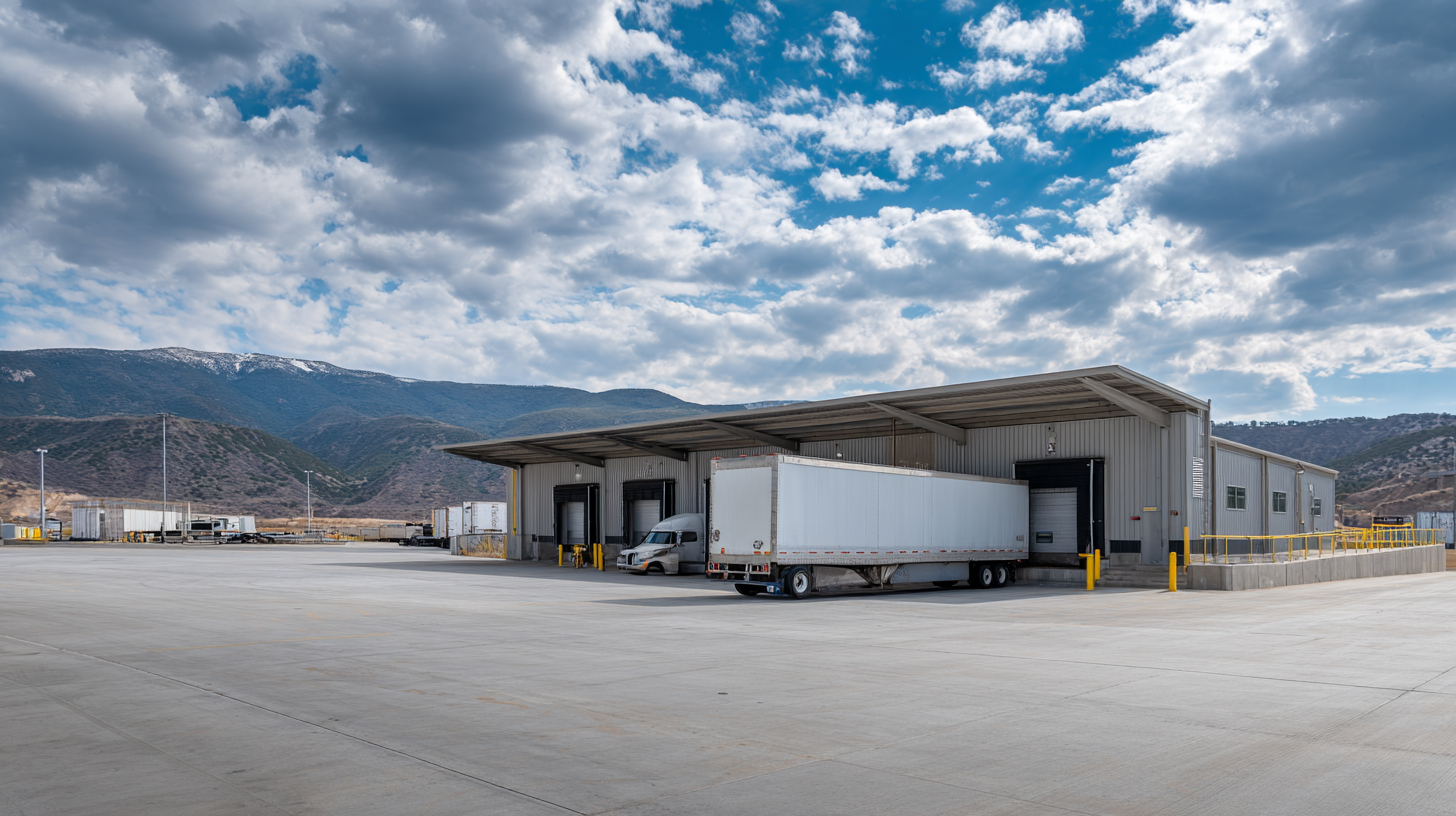 Another key aspect to consider is the physical space and configuration of your loading dock. Measure the height differences between the truck beds and your facility to determine the appropriate height range for the leveler. Also, take into account any potential obstructions or space constraints that could impact installation or operation. It may be beneficial to consult with a loading dock solutions expert who can help tailor your choice to fit your unique environment and streamline your loading dock operations for optimal efficiency.
Another key aspect to consider is the physical space and configuration of your loading dock. Measure the height differences between the truck beds and your facility to determine the appropriate height range for the leveler. Also, take into account any potential obstructions or space constraints that could impact installation or operation. It may be beneficial to consult with a loading dock solutions expert who can help tailor your choice to fit your unique environment and streamline your loading dock operations for optimal efficiency.
When selecting a loading dock leveler, it's crucial to prioritize maintenance and safety features that can significantly enhance performance. According to industry reports, regular maintenance can extend the life of loading dock equipment by up to 30%. A well-maintained leveler not only improves safety but also optimizes productivity by reducing downtime. Features such as automatic lubrication systems and easy accessibility for inspections can streamline maintenance tasks, ensuring that your dock leveler remains in optimal condition.
Incorporating safety features is equally vital. For instance, levelers equipped with audible alarms and visual signals provide essential warnings during operation, significantly reducing the risk of accidents. Data highlights that workplaces with robust safety measures see a 55% drop in incident rates. Additionally, considering models with safety edge technology can prevent injuries by detecting any obstruction as the leveler descends. By focusing on these crucial aspects, businesses can enhance their loading dock efficiency while safeguarding their employees.
When selecting a cost-effective loading dock leveler solution, budgeting plays a crucial role in ensuring you get the best value for your investment. According to a recent industry report, loading dock levelers can significantly vary in price, with basic models starting around $3,000 and advanced hydraulic systems reaching upwards of $10,000. Therefore, it’s essential to analyze your business needs and budget limitations to find a balance between quality and cost.
Consider the long-term savings associated with investing in higher-quality equipment. A report by the Material Handling Industry Association indicates that businesses can save up to 30% on maintenance costs over the lifespan of their equipment by choosing durable, well-built levelers. Additionally, energy-efficient models can cut down on operational costs, further enhancing value. Make sure to evaluate all available options and consider both initial expenditures and long-term savings to determine the most economically sound choice for your loading dock needs.
